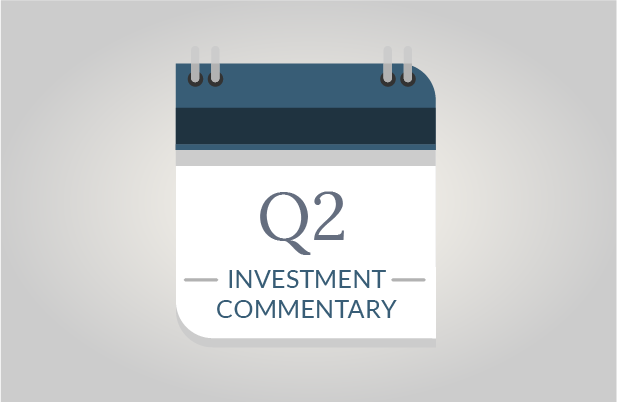The Dow Jones Industrial Average recently crossed a record-breaking 26,000, with other indices also hitting record highs. If you’ve been invested in stocks, you’re likely celebrating and considering if it’s time to take some profits through diligent rebalancing. Conversely, if you’re sitting on cash balances, you may be facing the difficult decision of whether now’s a good time to dive into the markets or whether you should stay on the cash sidelines. While the answer’s different for everyone, SageVest Wealth Management offers some advice on how to invest at market highs now the Dow’s above 26,000.
Will The Bull Market Continue?
With stocks reaching all-time highs and the bull market approaching its 9th anniversary, people are rightfully questioning how long it can continue. This is the second longest bull market in history, but also one of weakest in terms of performance: from a time standpoint, it’s a mature market, but from a return standpoint, it could still be in its infancy. No one has the answer. What we can say is that we’re in an ultra pro-business environment, with a heavy emphasis on growth. While we’re generally optimistic about stock potential in 2018, we advise every investor to first carefully consider these three key questions to evaluate whether you’re wisely invested:
1. Can You Cover Your Cash Needs For Five Years?
If you’re thinking of retiring, or have a large cash need, it’s important to ensure that your portfolio has adequate exposure to cash and bonds to protect you during a market downturn.
2. Do You Have Extra Cash And Bonds To Buy When Stocks Fall?
On top of covering any cash needs, it’s wise to have additional liquidity to buy stocks at cheaper prices when they fall.
3. Are You Likely To Sell When Stocks Fall?
Perhaps the most important question is will you be able and willing to ride out a market downturn (which will inevitably occur), or might you have a propensity to sell when stocks fall? If you think you might sell as stocks decline, you’re likely better off taking profits now at attractive prices.
Is It Time To Buy More Stocks?
Investor behavior often runs contrary to wise investment principles. It’s better to buy stocks when prices are low, but it’s also tempting to become more bullish when prices are high. If you’re thinking of buying more stocks now the Dow’s above 26,000, think carefully. Make sure your decision is part of a long-term investment strategy with an intention to remain more aggressive.
Is It Time To Sell Stocks?
The perils of market timing are well-documented, so if you’re thinking of selling out of stocks to sit on the sidelines, we caution you to reconsider. Just think how people who sold into cash years ago feel about their decision at today’s market highs, or, conversely, how people who were 100% in stocks felt during the 2008 market meltdown. Investors who focus long-term can be more confident in their investment decisions throughout varying market cycles.
What remains important is rebalancing as appropriate to keep your investments aligned with long-term objectives. This includes taking profits from stocks as they soar and buying back into stocks when the markets inevitably fall. If you’re not a disciplined investor, it might be time to hire a professional.
Is It Time To Invest Cash?
Perhaps the most challenging investment decision at all-time market highs is how to invest cash. Should you gamble that the markets will continue to move higher, or should you wait for lower prices? The answer’s never easy. Consider the following options:
How To Invest Recurring Savings
If you’re solely focused on investing recurring savings or a year-end bonus, we recommend continuing to invest in a fashion that follows your long-term investment objectives.
How To Invest Large Cash Infusions
If you just sold your business or home, collected an inheritance, or received some other substantial cash infusion, more analysis is prudent, especially if the amount’s meaningful enough to alter your long-term life outlook, such as accelerating retirement. In such cases, it might be time to seek the guidance of a wealth manager, who can help re-evaluate your investment horizon and appropriate positioning.
How To Invest If You Sold Out Of The Market
If you fell prey to market timing and called it wrong, you now face a dilemma. You’re trying to figure out if stocks will return to the level at which you sold, when this might happen, and if you should wait or not. In such instances, we often recommend getting back into the markets, but perhaps with a more conservative investment posture than your long-term ‘ideal’ allocation. This allows you to participate in stocks if they rise, but with cash and bonds to become more aggressive if stocks fall.
How To Invest If You’ve Always Been Invested in Cash, CDs, And Bonds
We extend a word of caution to those contemplating stocks if they’ve always invested in cash, CDs, and bonds. Many investors felt forced to invest in stocks to achieve growth during recent years of low interest rates and yields. We typically believe that some element of stock investing is appropriate for everyone. However, if your comfort level’s already feeling overextended, you need to consider how you’re going to react when stocks fall. If you’re not prepared to ride out a future market downturn, you should consider reducing stock exposure now, while prices remain attractive.
How Should Your Investments Be Positioned?
Ultimately, the best way to determine how you should be invested is to evaluate your long-term investment goals, considering elements such as:
- Your Age: What’s your investment horizon?
- Your Risk Tolerance: What’s your willingness to assume risk, or your propensity to sell?
- Your Growth Objectives: How much growth do you need to reach your financial goals?
- Your Income Needs: What cash or income might you need from your savings?
With all investment considerations, it’s important to remember that past performance doesn’t predict future results, and that all investments carry some level of risk. Ultimately, there’s no ‘one-size-fits-all’ approach to investing. These questions and your responses are designed to help you formulate a long-term investment plan that can help you weather not only market highs but also market lows too. Having such a plan allows you to avoid dangerous market timing or emotionally reflexive decisions.
SageVest Wealth Management is a top-ranked investment management firm in Washington, D.C. and Northern Virginia. Please contact us with your questions.




